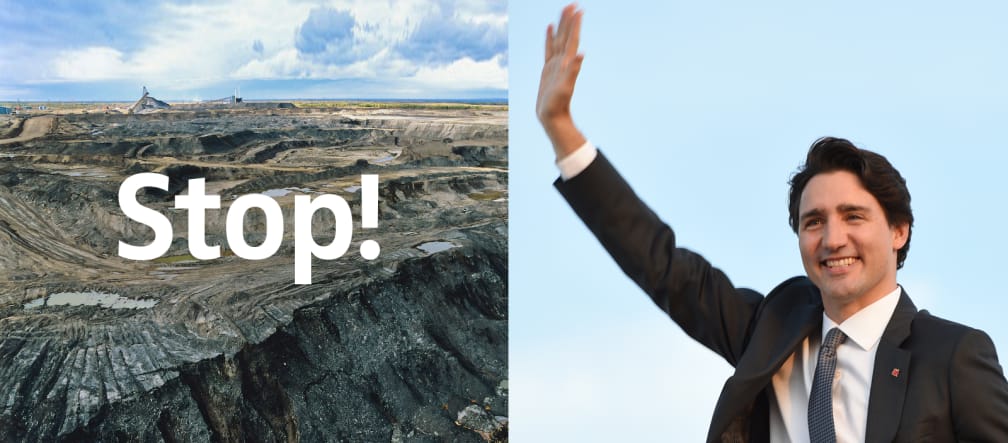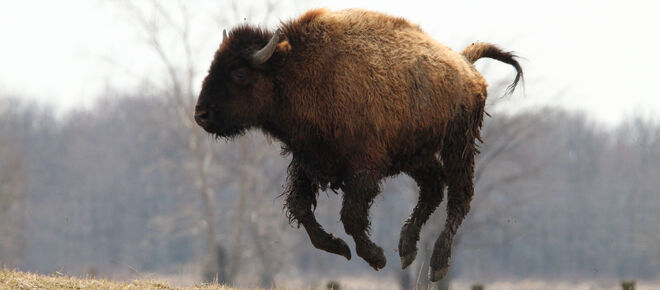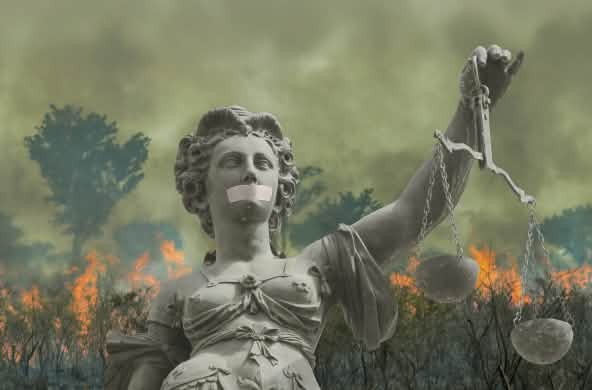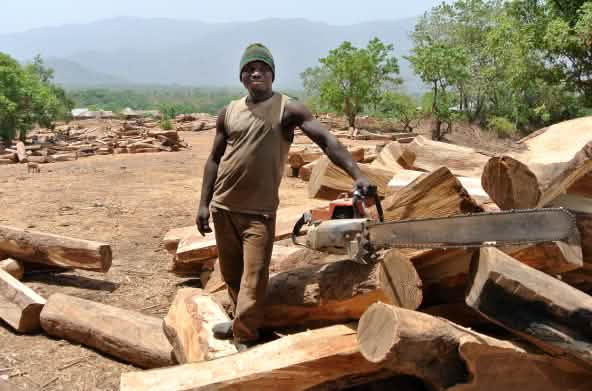
Completed campaign
Stop Canada's tar sand apocalypse!
The Canadian province of Alberta could become the scene of the world's largest open-pit mine for tar sand – the world's dirtiest fossil fuel. If realized, it would wipe out 292 square kilometers of forests and wetlands and be a disaster for the climate. Tell Canada to keep tar sand in the ground!
News and updatesTo: Canadian Prime Minister Justin Trudeau, Minister of Environment and Climate Change Jonathan Wilkinson
“Teck Resources' planned Frontier tar sand mine project would be an ecological disaster with a global impact. Keep tar sand in the ground.”The tar sand mining industry has already turned vast swathes of northern Alberta, Canada, into something straight out of Mordor: Forests are being felled to make way for open-pit mines. Tailing ponds contain water laden with heavy metals. Refineries pollute the air.
The new "Frontier" project would be an unparalleled ecological monster. If realized, the mine would destroy 3,000 hectares of old-growth forest and 14,000 hectares of wetlands. It would produce 260,000 barrels of oil a day – for the next 40 years.
Tar sand oil is the world's dirtiest fossil fuel, and extracting and refining it requires far greater amounts of energy than conventional oil. If realized, this project would make a mockery of Canada’s commitment to protect the climate – so much for phasing out fossil fuels.
The pipelines needed to export tar sand oil are environmental disasters waiting to happen: the Trans Mountain Pipeline crosses the Rocky Mountains to British Columbia’s Pacific coast. Oil spills are virtually pre-programmed, and a tanker accident could devastate the coastline and the habitat of 75 endangered orcas.
UNESCO is alarmed by the prospect of the mine: the guardians of World Heritage Sites see grave danger for Wood Buffalo National Park at the mouth of Athabasca River.
Local people are also impacted by the environmental destruction. The Mikisew Cree and Athabasca Chipewyan First Nations reject the project and have declared the land north of Firebag River to be a no-go area. This has not stopped the mining company from running roughshod over the rights of the indigenous peoples.
Canada's Prime Minister Justin Trudeau will be deciding on the mine in the near future. Please sign our petition: Tell the Canadian government to keep tar sand in the ground!
Canada’s boreal forests
Canada’s forests cover an area of 347 million hectares. Of those, 270 million hectares are boreal coniferous forests. Only Russia and Brazil have more forest. 94 percent of all forests in Canada are on public land. Politicians have a great influence over whether they are protected or open to exploitation by business.
The boreal forests of pine, spruce, fir and larch are the habitat of caribou, wolves and numerous bird species. Countless lakes, rivers and mountain ranges form a diverse mosaic of natural spaces. The forests are also a crucial bulwark against climate change, storing twice as much carbon as tropical forests.
Between 1990 and 2015, Canada’s forest area decreased by 1.2 million hectares, mainly due to logging, mining and hydropower projects. In many cases, the ecological impact is greater than the immediate physical one. For example, relatively narrow strips of land are cleared for roads, but caribou generally do not cross them and thus lose large parts of their habitat. They also keep at least 500 meters away from any disturbances of their environment. While the tar sands themselves cover an area of 475,000 hectares, their full exploitation would thus impact an area of 12,5 million hectares.
Wood Buffalo National Park in danger
At 44,807 square kilometers, Wood Buffalo National Park is Canada’s largest national park and largest UNESCO World Heritage Site. It also encompasses the world’s largest inland delta at the mouths of the Peace and Athabasca rivers.
Wood Buffalo National Park was established in 1922 declared a UNESCO World Heritage Site in 1983.
UNESCO describes the protected area as “the most ecologically complete and largest example of the entire Great Plains-Boreal grassland ecosystem of North America, the only place where the predator-prey relationship between wolves and wood bison has continued, unbroken, over time”.
The national park is also the only breeding habitat in the world for the endangered whooping crane (Grus americana). Experts estimate the population to be no more than 250 adult individuals.
Canada’s oil reserves
Canada’s tar sand deposits underlie more than 140,000 square kilometers of northeastern Alberta – an area larger than England. The country’s oil reserves are estimated at 170 billion barrels, putting it in second place after Saudi Arabia.
In 2016, Canada produced 2.8 million barrels of crude oil a day, 2.4 million of which come from tar sands. Current plans are to boost production to 5.1 million barrels a day by 2030, with 3.7 million from tar sands.
Three tons of sand – one barrel of oil
Tar sand is often called “oil sand”, a misleading term that trivializes the harmful chemical process required to extract oil from the bitumen in the sand. Two to three tons of sand are needed to obtain just one barrel of oil (159 liters). Processing the sand consumes up to five times more energy than the extraction of conventional oil. The fuel also emits 23 percent more greenhouse gases.
According to the Canadian Association of Petroleum Producers (CAPP), 12 billion barrels of tar sand oil have been extracted since 1967. As a result, 6.3 gigatons of carbon dioxide have been released into the atmosphere.
Strip mining tar sand not only devastates vast swathes of land, it also causes serious water pollution on a large scale. The contents of the tailing ponds, which presently cover 176 square kilometers, could bury London under a layer of toxic sludge nearly one meter deep. The muck contains heavy metals such as lead, mercury and arsenic, as well as carcinogenic polycyclic aromatic hydrocarbons. A study by the University of Toronto has shown that up to 1,000 times more toxins evaporate from the ponds than previously assumed. According to the Pembina Institute, 11 million liters of the toxic brew seep into the groundwater and pollute the Athabasca River every single day.
Athabasca River polluted
Fish in the Athabasca river and delta show striking deformations. Among the indigenous Mikisew Cree First Nation living downstream, certain cancers occur at up to seven times the national average rate. Locals in the town of Fort Chipewyan put the numerous deaths down to heavy metals in the environment. The Canadian government does not see a connection. Critics have described the government’s cavalier attitude toward the plight of the indigenous peoples as racist.
To date, the United States has been the main consumer of Canadian oil. Demand is falling, however. The U.S. has been pushing the extraction of oil and gas via fracking with the aim of becoming independent of foreign oil, a policy that has received added impetus under President Donald Trump.
Oil pipelines crossing the continent
Canada is planning major pipelines to transport the crude oil.
The Trans Mountain Expansion Project of the Kinder Morgan Pipeline has already been approved and is supported by Prime Minister Justin Trudeau. The pipeline links Alberta’s oil fields to the Pacific Coast. However, the provincial government of British Columbia is trying to foil the construction with proposed environmental regulations.
The Enbridge Line 3 pipeline, which will head south toward the U.S., has already been approved. The planned 2,700 km Keystone XL pipeline would also link Canada’s tar sand fields to refineries in Texas.
The oil industry has been calling for a pipeline to the east to export tar sand oil to Europe. In late 2017, however, the TransCanada group bowed to public pressure and dropped its Energy East project to the Atlantic coast.
To: Canadian Prime Minister Justin Trudeau, Minister of Environment and Climate Change Jonathan Wilkinson
Dear Prime Minister,
Dear Minister Wilkinson,
Canada is among the countries with the most extensive forests on the planet. The old-growth rainforests of British Columbia, the maple tree forest in Quebec, and the boreal forests in the North are habitat for countless plant and animal species. The forests and wetlands store huge amounts of carbon and play an important role in mitigating climate change on a global scale.
It is crucial that Canada protect its forests – yet you have not been living up to this responsibility.
The tar sand areas in Alberta are the most horrible and obvious example of this lack of responsibility. For many years, vast forest and wetlands areas have been destroyed for open-pit mines and the production of the dirtiest fossil oil in the world. The Athabasca river has been poisoned, caribou and bear habitat has been destroyed and First Nations rights have been violated.
Teck Resource’s proposed Frontier tar sand mine would damage Canada’s climate change commitments. From the year 2026 on, Teck plans to produce 260,000 barrels oil per day – over the course of 50 years. The approval of this new project would perpetuate the burning of fossil fuels despite the urgent need for humanity to switch to renewable energy as soon as possible to avoid further damage to the climate.
Furthermore, the tar sand mine project would be harmful to the habitat of significant plant and animal species, to the Athabasca River and other water resources, and to the Wood Buffalo National Park UNESCO World Heritage Site.
Considering the existing and potential damage and harm, we ask you kindly to:
- stop Teck Resource’s proposed Frontier tar sand mine and tar sand exploitation in general.
- stop the construction of oil pipelines like Trans Mountain that are connected with tar sand exploitation.
- protect the Wood Buffalo National Park, a UNESCO World Heritage Site.
- protect Canada’s forests, wetlands, rivers and lakes.
- respect the rights of First Nations and Métis communities who oppose tar sand mining and oil pipelines.
Your government was praised during the Bonn climate summit when announcing an end to burning coal. That pledge would be hypocritical, however, if you continue keep supporting tar sand exploitation. Canada can neither achieve its climate targets under the Paris Agreement nor its national climate plan if it exploits tar sand further.
Please live up to your responsibility to protect Canada’s forest and the global climate: keep tar sand in the ground!
Yours faithfully,

A massive tar sands mine project in Canada has been abandoned. The company behind it, Teck Resources, has withdrawn its permit application. The mine project became unfeasible because of resistance against it and the debate about climate protection.
A Canadian court has stopped the expansion of an oil pipeline because the impact of the project on whales was neglected – a great success for environmental campaigners and Canada’s First Nations.

